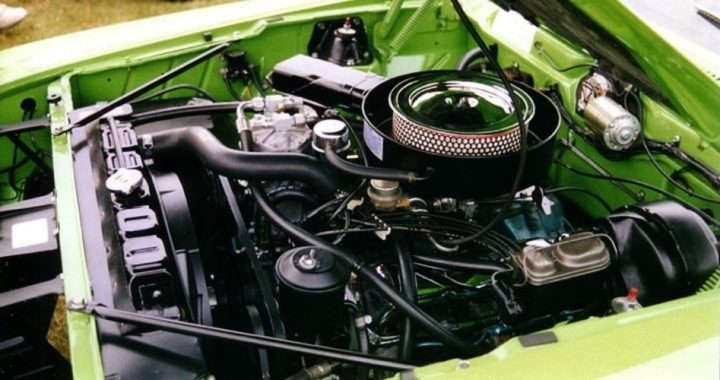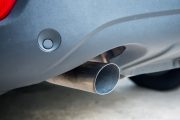
During an interview with Bloomberg in New York on September 22, Mary Nichols, chairman of the California Air Resources Board (CARB), said that the state’s governor, Jerry Brown, has raised the subject of banning cars with internal combustion engines with her. The idea was inspired by similar bans in China, France, and the United Kingdom.
“I’ve gotten messages from the governor asking, ‘Why haven’t we done something already?’” Nichols said, referring to China’s plan to end the use of vehicles powered by fossil fuels by 2030. “The governor has certainly indicated an interest in why China can do this and not California.”
Considering Brown’s leftist track record, it is not surprising that he would seek to emulate Communist China. In a July 6 article posted by The New American, Alex Newman provided a recent example of Brown’s propensity to work with China against American interests. Newman wrote:
Under the guise of fighting alleged man-made global warming, California Governor Jerry Brown is defying the elected government of the United States and forming an unconstitutional alliance with the mass-murdering communist regime enslaving mainland China. Responding to U.S. President Donald Trump’s decision to kill the illegal United Nations Paris Accord on “climate change,” Brown and his radical allies were foaming at the mouth, vowing to join forces with others to “resist” while calling the president “insane.” By contrast, Brown and his allies were busy praising the murderous dictatorship in Beijing as a heroic and progressive “leader” for “the world” in the supposed fight to save humanity from the gas of life known as carbon dioxide.
Brown and Nichols are evidently seriously considering a move to ban internal combustion engine cars in California. “There are people who believe, including who work for me, that you could stop all sales of new internal-combustion cars by 2030. Some people say 2035, some people say 2040,” Nichols told Bloomberg. “It’s awfully hard to predict any of that with precision, but it doesn’t appear to be out of the question.”
Bloomberg noted the economic consequences that would result if California were to implement a ban on internal-combustion cars. The consequence would be considerable, since more than two million new passenger vehicles were registered in the state last year — more than France, Italy, or Spain. In 2016, California accounted for 12 percent of total U.S. new-vehicle registrations.
If a ban were implemented, automakers would be under new pressure to make electric vehicles the standard for sales in California. This would have an impact on the future of gasoline- and diesel-powered autos elsewhere.
“We have been working with California on intelligent, market-based approaches to emissions reductions beyond 2025, and we hope that this doesn’t signal an abandonment of that position,” Bloomberg quoted John Bozzella, CEO of the Association of Global Automakers.
United States emissions standards are regulated by the Environmental Protection Agency (EPA). However, out of consideration for Southern California’s legendary smog problem, the EPA allows California to impose more stringent vehicle emissions standards — subject to EPA approval — than are required nationally. Other states may choose to follow either the national or California standards.
California’s emissions standards are set by the California Air Resources Board (CARB), the aforementioned agency chaired by Nichols. By mid-2009, 16 other states had adopted CARB rules, and because of the size of the California market plus these other states, many manufacturers choose to build to the CARB standard when selling in all 50 states. Because of this influence, the Bloomberg writer theorized that should the state move ahead with its plan to ban internal combustion engine powered cars, it might cause auto manufacturers to phase out such cars nationally, as well. This would be regrettable for several reasons.
First of all, at some point, the law of diminishing returns has to figure into the equation, as the crippling economic costs of complying with ever more stringent regulations don’t produce enough beneficial environmental results to justify the cost, even assuming that the new standards would improve air quality and that lowering CO2 levels would have the effect of moderating global temperatures.
Another factor to be considered is whether or not eliminating cars with internal combustion engines and replacing them with electric vehicles is beneficial at all. Thomas Lifson in American Thinker confirmed that cars nowadays have vastly lower emissions than just a few decades ago, to the extent that the skies are blue instead of smog-gray in the Los Angeles area. Lifson wrote, “Internal combustion engine performance has improved so radically over the past several decades that they actually emit very few pollutants compared to engines of the past. The internal combustion engine is the most highly engineered product on the planet, having been worked on for well over a century by hundreds of thousands of engineers all over the planet.”
Another article by Selwyn Duke in The New American in July 2013 cited data offered by former General Motors engineer Ozzie Zehner (author of the book Green Illusions). Zehner wrote that generating the electicity to recharge electric vehicles’ batteries is an overlooked source of pollution. Zehner made several other points concerning the disadvantages of replacing internal combustion vehicles with electric ones, including:
• A National Academies’ study considered multiple dimensions of electric vehicles’ associated effects — such as “vehicle construction, fuel extraction, refining, emissions, and other factors” — and “concluded that the vehicles’ lifetime health and environmental damages (excluding long-term climatic effects) are actually greater than those of gasoline-powered cars”; in fact, “the study found that an electric car is likely worse than a car fueled exclusively by gasoline derived from Canadian tar sands.”
• When electric cars’ total effects are considered, the level of “greenhouse-gas” emissions associated with them is only marginally lower than that associated with gas or diesel vehicles….
• A University of Tennessee study of electric vehicles in China … concluded that their effects were, on balance, worse than those of conventional autos.
Too, a May 2016 article from Selwyn Duke cited a study conducted by Peter Achten and co-author Victor Timmers at the University of Edinburgh that revealed that while people understandably focus on what’s released from exhaust pipes in relation to their effects on people, the research indicates that two-thirds of total emissions come from other sources. An article in the Daily Caller noted:
“We found that non-exhaust emissions, from brakes, tires and the road, are far larger than exhaust emissions in all modern cars,” Achten wrote in the study.
He continued: “These are more toxic than emissions from modern engines so they are likely to be key factors in the extra heart attacks, strokes and asthma attacks seen when air pollution levels surge.”
Californians (and others) would do well to consider the entire environmental impact of electric vehicles before going down the costly road to replacing gasoline powered cars with electric cars.
Photo: Christopher Ziemnowicz via Wikipedia
Related articles:
California Joins Forces With Communist Regime Against U.S.
Calif. Governor Jerry Brown Vows to Resist Trump Climate Policies
Electric Cars: Let the Free Market Decide
Electric Cars: Child Slave Labor, Market Manipulation, and Environmental Pollution
Former Electric-car Engineer: Electric Cars Pollute More Than Gas
Study: Electric Vehicles Pollute More Than Gas-powered Cars


